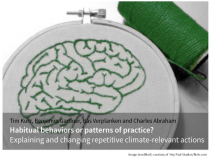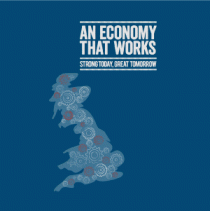- About
- Team
- Projects
- Children and the Environment
- ELiCiT (Exploring lifestyle changes in transition)
- Foundations for Sustainable Living
- HABITs
- Mapping Rebound Effects
- PASSAGE (Prosperity and Sustainability in the Green Economy)
- Policy Dialogue
- Price Responsiveness of Demand in Energy
- Resilience and Sustainable Lifestyles
- Sustainability Transitions in Food Systems
- Sustainable Living in Remote Rural Scotland
- Publications
- News
- Events
Rebound effects
SLRG fellow Steve Sorrell responds to the recent Breakthrough report on rebound effects.
Will improved energy efficiency lead to increased energy consumption in the developing world? Quite possibly.
A new report from the US Breakthrough Institute (BTI) provides evidence that historical improvements in the energy efficiency of lighting, steel and electricity production have led to greater energy consumption that would have been the case in the absence of those improvements. In other words, the ‘rebound effects’ have exceeded 100% (‘backfire’). The authors expect this experience to be replicated in industrialising economies, with the result that improved energy efficiency will contribute much less to reducing energy use and carbon emissions than is commonly assumed.
The BTI report was publicised in a New York Times op-ed, leading to various follow-up blogs (e.g. from Joe Romm) and a flurry of activity on Twitter. A similar response greeted at an earlier BTI report on rebound effects which found: “…a large expert consensus and strong evidence that below-cost energy efficiency measures drive a rebound in energy consumption that erodes much and in some cases all of the expected energy savings.” Both reports brought welcome media attention to this important subject, but the intensity of the ensuing debate demonstrates that a consensus on the importance of rebound remains elusive.

Related links
- Chitnis M, S Sorrell, A Druckman, S Firth and T Jackson 2014. Who rebounds most? Estimating direct and indirect rebound effects for different UK socioeconomic groups. In: Ecological Economics, Volume 106: 12–32. - See more at: http://www.sustainablelifestyles.ac.uk/rebound-effects-sustainable-behav...
- For background information, visit the SLRG project page on Mapping rebound effects from sustainable behaviours
- Read the latest SLRG publication on rebound effects, co-authored by M Chitnis, S Sorrell, A Druckman, S Firth and T Jackson: Who rebounds most? Estimating direct and indirect rebound effects for different UK socioeconomic groups
Image: courtesy of bplanet/freedigitalphotos.net
Mapping rebound effects from sustainable behaviours - See more at: http://www.sustainablelifestyles.ac.uk/projects#sthash.E7d10E2s.dpuf













